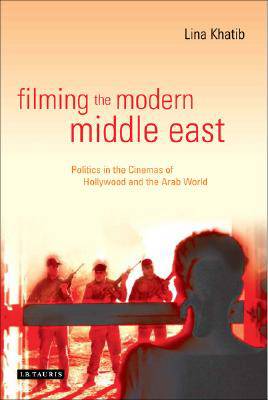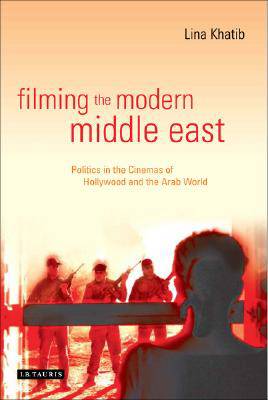
Je cadeautjes zeker op tijd in huis hebben voor de feestdagen? Kom langs in onze winkels en vind het perfecte geschenk!
- Afhalen na 1 uur in een winkel met voorraad
- Gratis thuislevering in België vanaf € 30
- Ruim aanbod met 7 miljoen producten
Je cadeautjes zeker op tijd in huis hebben voor de feestdagen? Kom langs in onze winkels en vind het perfecte geschenk!
- Afhalen na 1 uur in een winkel met voorraad
- Gratis thuislevering in België vanaf € 30
- Ruim aanbod met 7 miljoen producten
Zoeken
€ 59,45
+ 118 punten
Uitvoering
Omschrijving
'Filming the Modern Middle East' is the first comparative investigation of how modern American cinema and the cinemas of the Arab world represent Middle Eastern politics to their audiences. Lina Khatib examines the cinematic depictions of major political issues, from the Arab-Israeli conflict to the Gulf War, to Islamic fundamentalism, and covers films made in the USA, in Egypt, Tunisia, Morocco, Lebanon, Syria and Palestine. She explores cinema's role as a tool of nationalism in the USA and the Arab world, and the challenges the Arab cinemas present to Hollywood's dominant representations of Middle Eastern politics. But, she also reveals similarities between supposed contradictory cinemas and - importantly - not only how the 'Orient' is constructed by the 'Occident', but also how the 'Orient' itself in these cinemas represents Self and Others and how it is consumed by internal as well as external struggles. This is a fascinating, original contribution to the burgeoning interest in world cinemas, which also offers a fresh way of seeing Middle East politics through cinematic lenses.
Specificaties
Betrokkenen
- Auteur(s):
- Uitgeverij:
Inhoud
- Aantal bladzijden:
- 256
- Taal:
- Engels
- Reeks:
- Reeksnummer:
- nr. 57
Eigenschappen
- Productcode (EAN):
- 9781845111915
- Verschijningsdatum:
- 28/11/2006
- Uitvoering:
- Paperback
- Formaat:
- Trade paperback (VS)
- Afmetingen:
- 161 mm x 234 mm
- Gewicht:
- 408 g

Alleen bij Standaard Boekhandel
+ 118 punten op je klantenkaart van Standaard Boekhandel
Beoordelingen
We publiceren alleen reviews die voldoen aan de voorwaarden voor reviews. Bekijk onze voorwaarden voor reviews.









